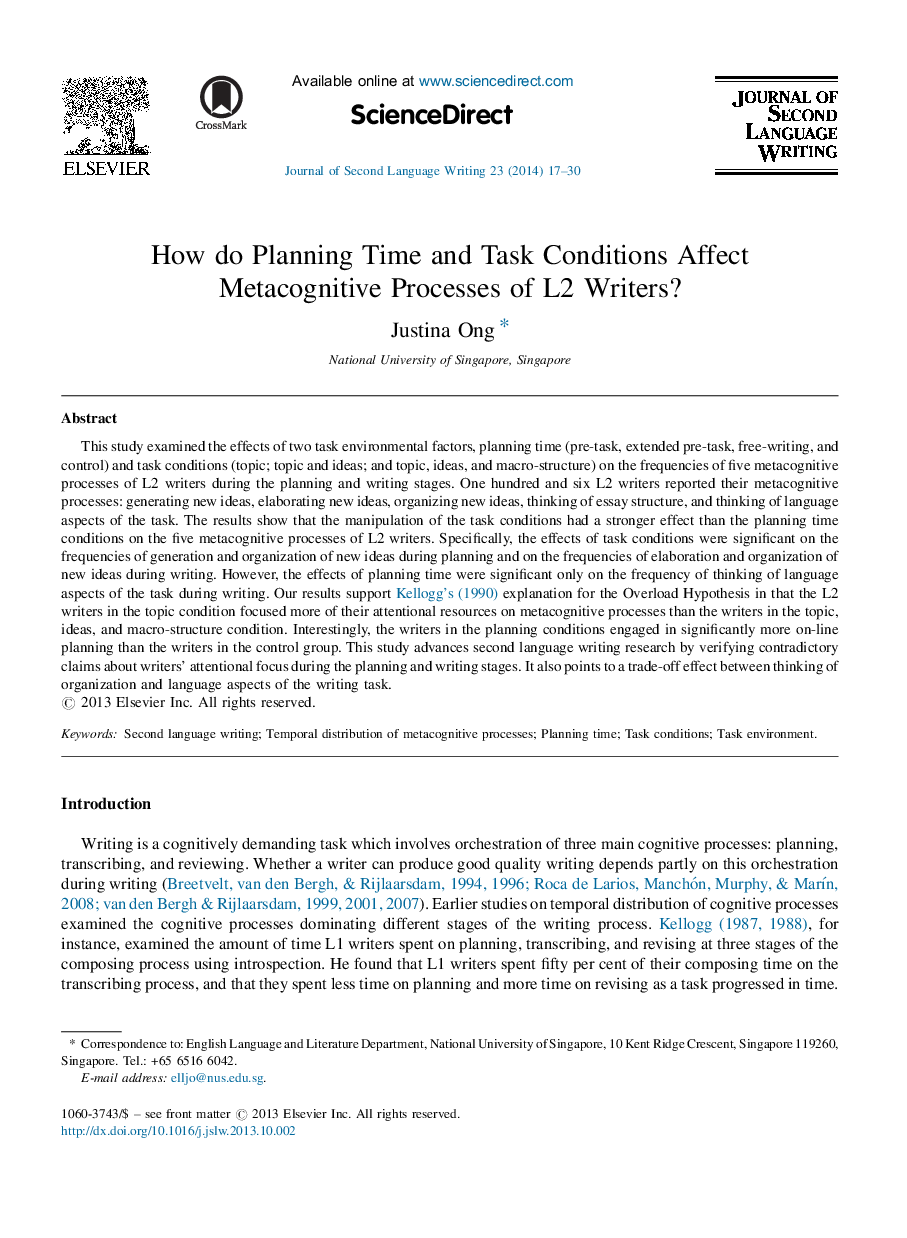| Article ID | Journal | Published Year | Pages | File Type |
|---|---|---|---|---|
| 364002 | Journal of Second Language Writing | 2014 | 14 Pages |
This study examined the effects of two task environmental factors, planning time (pre-task, extended pre-task, free-writing, and control) and task conditions (topic; topic and ideas; and topic, ideas, and macro-structure) on the frequencies of five metacognitive processes of L2 writers during the planning and writing stages. One hundred and six L2 writers reported their metacognitive processes: generating new ideas, elaborating new ideas, organizing new ideas, thinking of essay structure, and thinking of language aspects of the task. The results show that the manipulation of the task conditions had a stronger effect than the planning time conditions on the five metacognitive processes of L2 writers. Specifically, the effects of task conditions were significant on the frequencies of generation and organization of new ideas during planning and on the frequencies of elaboration and organization of new ideas during writing. However, the effects of planning time were significant only on the frequency of thinking of language aspects of the task during writing. Our results support Kellogg's (1990) explanation for the Overload Hypothesis in that the L2 writers in the topic condition focused more of their attentional resources on metacognitive processes than the writers in the topic, ideas, and macro-structure condition. Interestingly, the writers in the planning conditions engaged in significantly more on-line planning than the writers in the control group. This study advances second language writing research by verifying contradictory claims about writers’ attentional focus during the planning and writing stages. It also points to a trade-off effect between thinking of organization and language aspects of the writing task.
